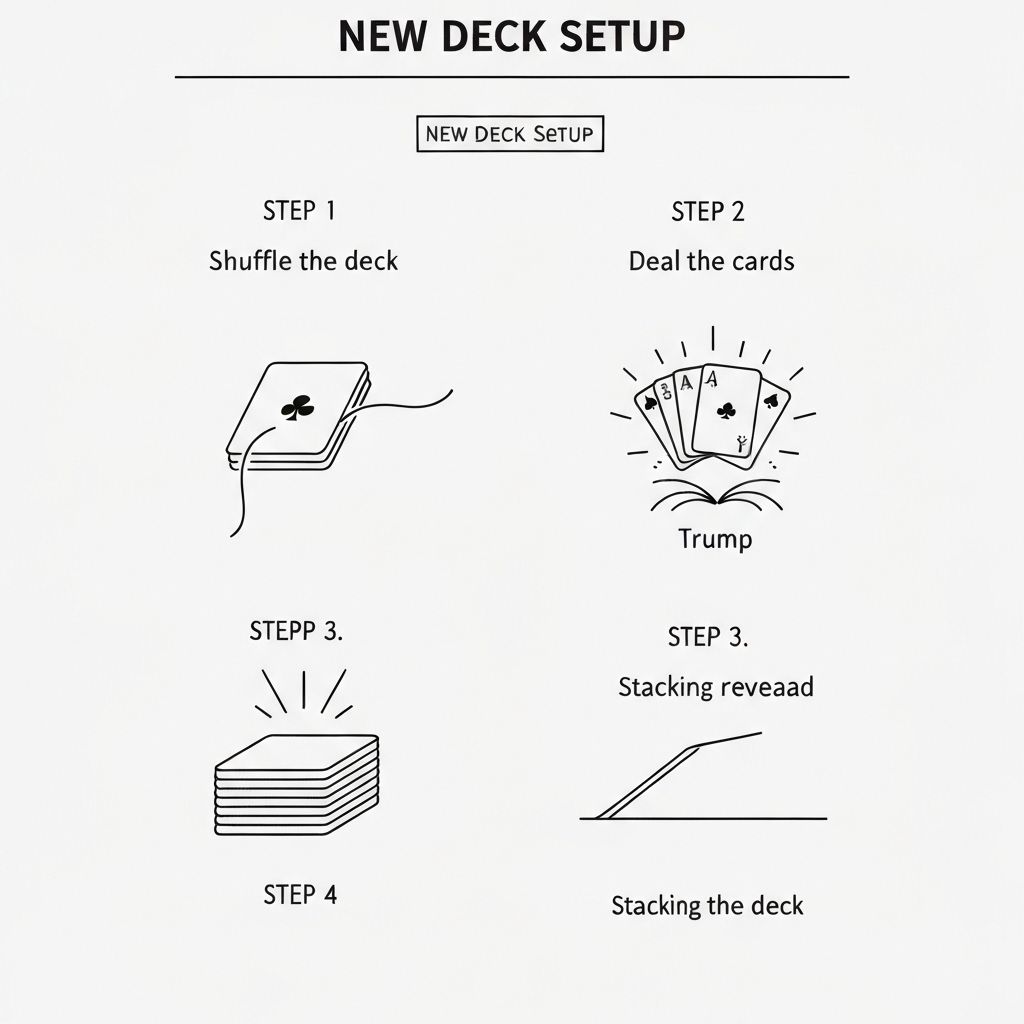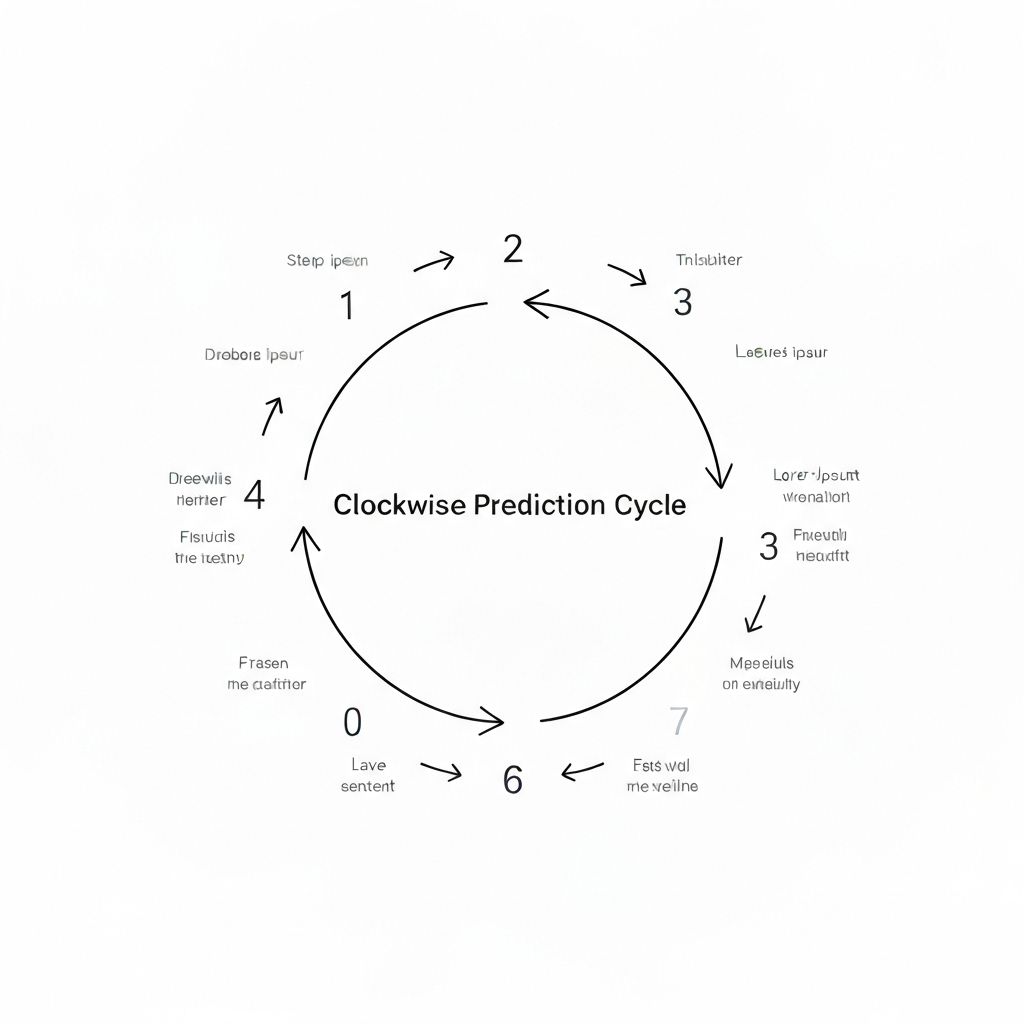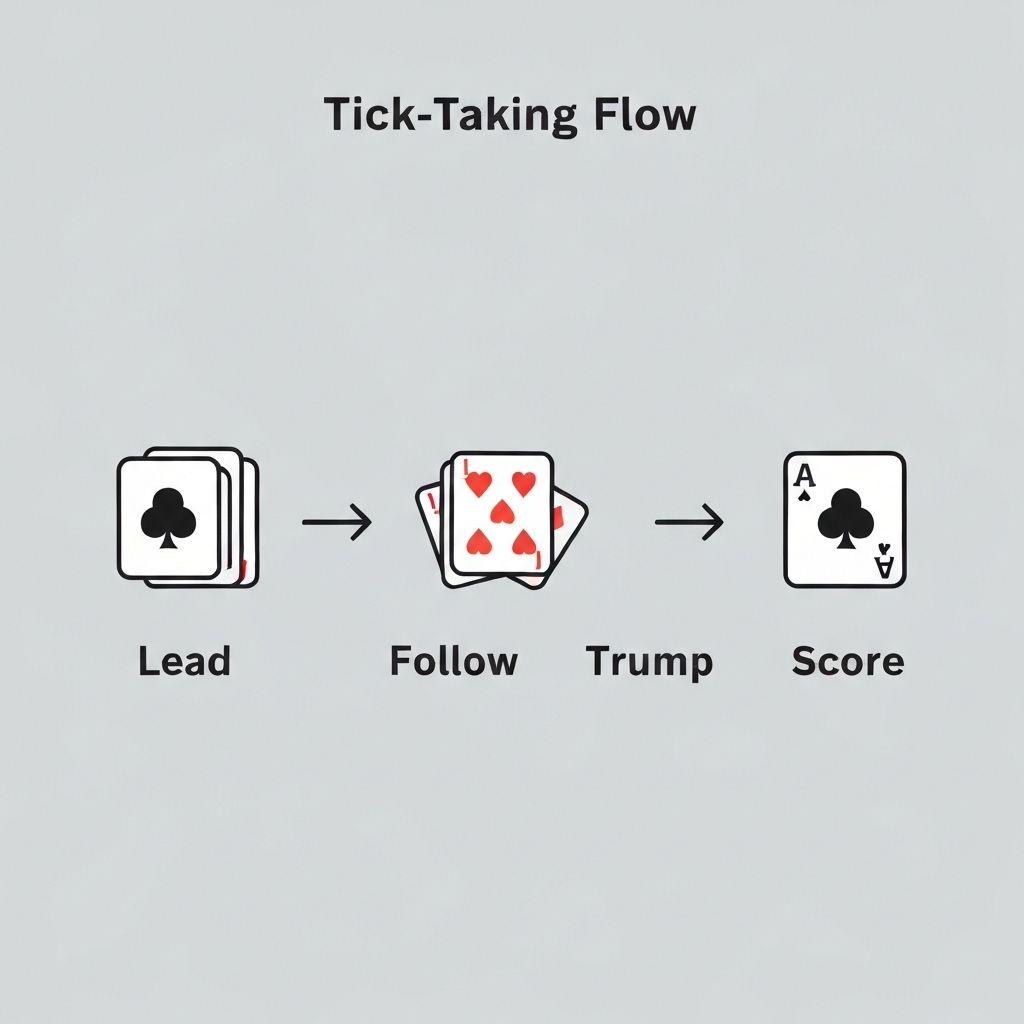Beginner's Guide to Judgement
Step-by-step introduction to deck setup, bidding, and trick play for your first online Judgement game.
Beginner's Guide to Judgement
Judgement blends the excitement of prediction with the precision of trick-taking. If you are joining friends in one of our online rooms for the first time, this guide walks you through the full round structure -- from setting up the deck to marking scores -- so you can focus on enjoying the card play.
TL;DR
- Deal one card per player, climb to the max you can handle, then count back down.
- Bid exactly; the last bidder cannot make the table total equal the number of tricks.
- Hits score
11 * prediction + 10; misses pay 0 unless Double Points is active (then -15). - Use Blind modes and Double Points once you are comfortable to sharpen advanced tactics.

Deck setup essentials
The deck prep stage keeps every round balanced. Follow these checkpoints before the first card is led:
- Shuffle a standard 52-card deck. Jokers stay out; two suits of hearts and diamonds, two of spades and clubs.
- Deal the hand size for the current round. Early rounds usually start at one card each and increase up to ten, then count back down.
- Flip the next card to establish trump. The suit of this card reigns for the round unless you are in a designated no-trump hand.
- Stack the remaining stock neatly. Those cards stay untouched for the rest of the hand.

Table tip: Keep the flipped trump card visible to every player. In our digital rooms the trump suit icon is pinned beside the scoreboard so you never lose track.
Predicting your tricks (the bidding phase)
Judgement's signature twist is forecasting how many tricks you will capture. The combined predictions may never equal the total number of tricks available, forcing someone to stretch.

Clockwise bidding order
- The player immediately to the dealer's left starts the bidding.
- Each player predicts a non-negative number of tricks they expect to win.
- The dealer goes last and must avoid making the grand total equal the number of tricks in the round.
Keeping bids realistic
| Hand Size | Typical Winning Bid | Why it Works |
|---|---|---|
| 1 card | 0 or 1 | Limited information; safe guesses hedge risk |
| 5 cards | 2 or 3 | Enough rounds to leverage high cards or trump |
| 10 cards | 4 to 6 | Half the deck is in play; balance aggression and defense |
Quick mental check: add every bid out loud. If the sum matches the trick count before the dealer speaks, they must pick a different number.
Playing each trick
Once bids are locked in, the deck gives way to tactics. Every trick follows a tight rhythm: lead, follow suit, decide on trump, then record the winner.

- Leader plays any card. The round opener is the player left of the dealer, while subsequent trick winners lead next.
- Players must follow suit when possible. Running out of the lead suit frees you to discard or attack with trump.
- Highest card of the lead suit wins unless someone plays a trump. In that case, the strongest trump takes the trick.
- Collect and track tricks immediately. Winners stack cards face-down and mark a tally beside their username in the scoreboard panel.
Scoring the round
At the end of the hand, compare predictions to actual trick counts.
- Exact match: Score 10 base points plus 11 for every trick you predicted. Calling 3 and landing it earns 43 points.
- Missed prediction: Earn zero points for the round, whether you overshoot or fall short of your contract.
- Bonus streaks: Consecutive exact bids add momentum because the payout scales with your predictions; use the history column on the online scoreboard to monitor streaks.
Remember: Achieving your bid matters more than snatching extra tricks. Sometimes letting an opponent win a trick keeps your final tally perfect.
Next steps
- Activate Double Points between rounds to test your nerve. The power doubles hits for 3 rounds but turns misses into -15. Read the Double Points and Special Power Guide before you try it.
- Enable Blind Prediction or Blind Tricks when you create the room (host-only switches under Game Settings) to practice memory and disciplined counting. Details live in Blind Modes Explained.
- Jump into a solo lobby with Noble Gas Bots for low-pressure reps. The Practice with Noble Gas Bots article outlines suggested drills.
Ready for your first game
With deck prep, bidding, and trick flow under your belt, you're equipped to jump into a live Judgement room. Share this guide with new players so everyone can align on expectations and enjoy a smooth, strategic match from the opening shuffle to the final score reveal.